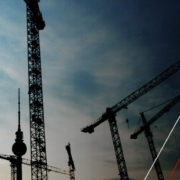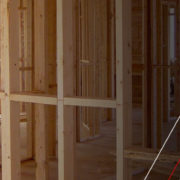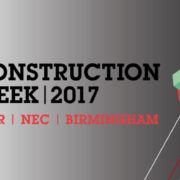Managing Construction Projects: Tips for Success
Effective management of construction projects is crucial for ensuring timely completion, within budget, and to the desired quality standards. With various challenges such as tight schedules, budget constraints, and coordination among multiple stakeholders, efficient project management is essential. This post provides key tips for successfully managing construction projects.
Comprehensive Project Planning
Successful construction projects start with detailed planning. Essential steps include:
- Defining Objectives: Clearly outline project goals, scope, and deliverables.
- Scheduling: Develop a realistic project timeline, including milestones and deadlines.
- Resource Allocation: Identify required resources, including labor, materials, and equipment, and allocate them efficiently.
- Risk Management: Anticipate potential risks and create contingency plans.
Effective Communication
Clear and consistent communication is vital for coordinating efforts and avoiding misunderstandings. Best practices include:
- Regular Meetings: Schedule frequent meetings with all stakeholders to discuss progress, challenges, and updates.
- Communication Tools: Utilize tools like project management software, instant messaging, and email to keep everyone informed.
- Documentation: Maintain thorough documentation of all communications, decisions, and changes to ensure transparency.
Budget Management
Keeping the project within budget is crucial for its success. Strategies for effective budget management include:
- Detailed Cost Estimation: Prepare accurate cost estimates based on thorough research and past project data.
- Monitoring Expenses: Track expenditures regularly and compare them against the budget.
- Cost Control Measures: Implement cost-saving measures without compromising quality, and be prepared to adjust plans if necessary.
Quality Control
Maintaining high standards of quality ensures the project meets specifications and client expectations. Key practices include:
- Setting Standards: Define quality standards and specifications for all materials and workmanship.
- Regular Inspections: Conduct frequent quality checks and inspections at various stages of the project.
- Training: Ensure that all team members are well-trained and understand the quality requirements.
- Feedback Mechanism: Establish a system for reporting and addressing quality issues promptly.
Risk Management
Proactively managing risks can prevent delays and additional costs. Effective risk management involves:
- Identifying Risks: Conduct risk assessments to identify potential issues that could impact the project.
- Mitigation Plans: Develop strategies to mitigate identified risks.
- Monitoring: Continuously monitor for new risks and adjust plans accordingly.
- Insurance: Ensure that appropriate insurance coverage is in place to protect against unforeseen events.
Resource Management
Efficient resource management ensures that labor, materials, and equipment are used effectively. Key strategies include:
- Scheduling: Create detailed schedules for labor and equipment to avoid downtime.
- Inventory Control: Maintain accurate records of materials and supplies to prevent shortages or overstocking.
- Subcontractor Coordination: Ensure that subcontractors are well-coordinated and adhere to project timelines and standards.
Technology Utilisation
Leveraging technology can enhance project management efficiency. Useful technologies include:
- Project Management Software: Use software like Procore, Buildertrend, or MS Project for planning, scheduling, and collaboration.
- BIM (Building Information Modeling): Utilise BIM for better planning, design, and management of construction projects.
- Drones: Employ drones for site surveys, progress monitoring, and safety inspections.
- Mobile Apps: Implement mobile apps for real-time communication, data collection, and task management.
Stakeholder Engagement
Engaging stakeholders throughout the project ensures their needs and expectations are met. Effective engagement involves:
- Regular Updates: Keep stakeholders informed about project progress and any changes.
- Feedback: Seek and incorporate stakeholder feedback to improve project outcomes.
- Conflict Resolution: Address any conflicts or issues promptly to maintain positive relationships.
Sustainability Practices
Incorporating sustainability into construction projects can lead to long-term benefits. Key practices include:
- Eco-friendly Materials: Use sustainable and recycled materials whenever possible.
- Energy Efficiency: Design buildings for energy efficiency and incorporate renewable energy sources.
- Waste Management: Implement strategies to reduce, reuse, and recycle construction waste.
Effective construction project management involves comprehensive planning, clear communication, budget and quality control, proactive risk management, efficient resource utilisation, technology adoption, stakeholder engagement, and sustainability practices. By implementing these tips, construction managers can enhance project success, delivering projects on time, within budget, and to the highest standards of quality. Prioritising these practices not only ensures project success but also fosters a positive and productive working environment.
If you would like to discuss please contact us to arrange a consultation with one of our experts.











